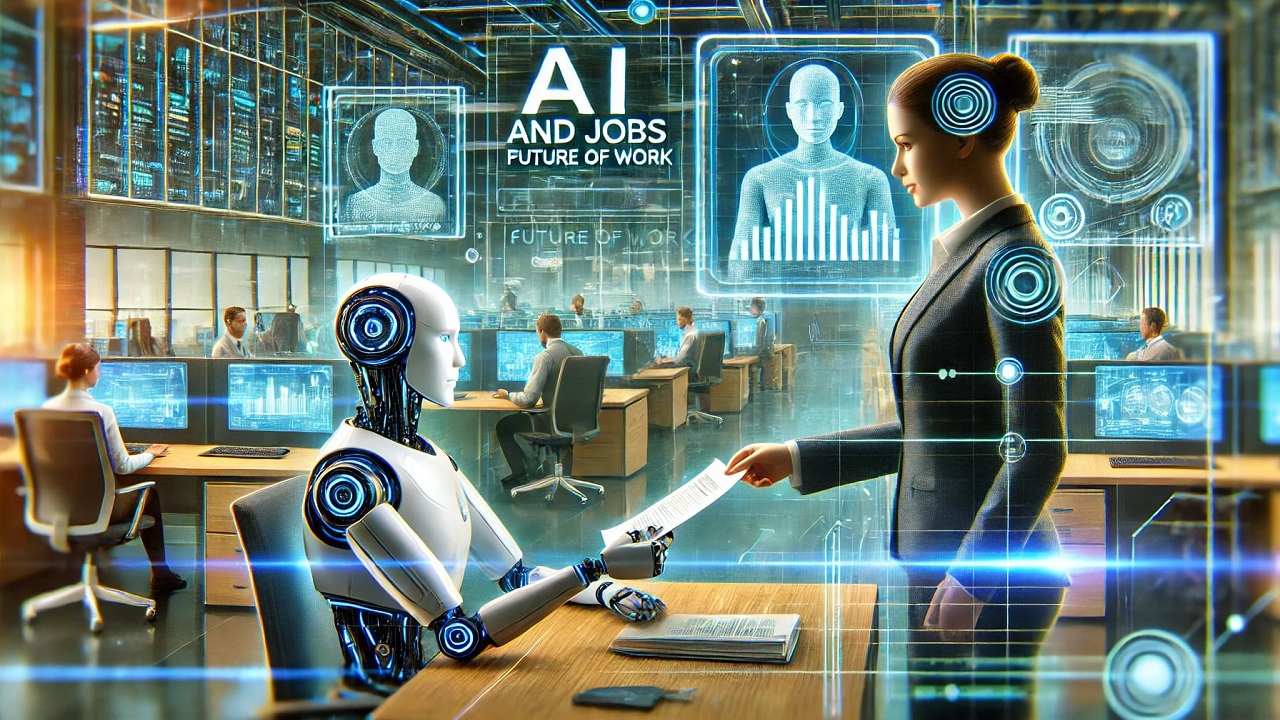AI and India’s Future: Balancing Productivity with Inclusion
Context
Artificial Intelligence (AI) is rapidly reshaping global economies by transforming industries, employment, and innovation. For India, the key challenge lies in ensuring that AI enhances productivity and generates inclusive employment rather than deepening inequalities. The way AI is integrated into the economy will decide whether it acts as a driver of equitable prosperity or a source of displacement and inequality.
AI’s Potential Impact on Jobs and Economy
-
According to the ServiceNow–Pearson AI Skills Research 2025 Report, AI could reshape over 10.35 million jobs and create 3 million new tech roles in India by 2030, positioning the country ahead of Singapore and Australia in AI transformation.
-
The International Labour Organisation (ILO) 2025 Study highlights that jobs may evolve with AI rather than disappear completely. However, low skilling levels and a large informal workforce remain structural hurdles.
-
Sectoral Impacts:
-
Agriculture: Limited exposure to AI-driven tools.
-
Labour-intensive services: Contributed 55% to GDP and 31% to employment in FY24, but faces high vulnerability to automation.
-
AI Pathways: Automation vs. Augmentation
-
Automation:
-
Replaces workers to increase efficiency.
-
Raises the risk of large-scale job losses.
-
-
Augmentation:
-
Complements human effort rather than replacing it.
-
Enhances productivity while preserving employment.
-
-
Nobel Laureate Daron Acemoglu stresses that AI’s impact is a policy choice, not destiny. India must consciously avoid the automation trap and adopt a human-centric approach.
Policy Priorities for Inclusive AI
-
Skilling and Lifelong Learning:
-
Embed digital and AI competencies in schools, ITIs, universities, and vocational centres.
-
Reskilling initiatives by firms like Infosys, Tata Steel, and Siemens provide positive examples.
-
-
Reducing Inequality:
-
Build inclusive infrastructure to ensure broad access.
-
Scale up programs such as Atal Innovation Mission, Startup India, Future Skills PRIME, and YUVAi (Youth for Unnati and Vikas with AI).
-
-
Fostering Entrepreneurship:
-
Empower MSMEs with digital tools, computing access, and tailored skilling support.
-
Shift focus from unicorn-driven growth to sustainable, employment-rich enterprises.
-
Ensuring a Competitive and Open AI Ecosystem
-
Prevent monopolisation by large, vertically integrated firms.
-
Ensure contestability in AI markets through:
-
Open APIs that provide public access to developers.
-
Interoperable systems that enhance accessibility.
-
Development of Indigenous Small Language Models (SLMs) and vernacular AI tools.
-
-
Treat computing, storage, and datasets as public goods under India’s Digital Public Infrastructure (DPI) framework.
Way Forward
AI should be seen as a saarthi (charioteer), guiding inclusive growth, rather than as a vinashak (destroyer) of jobs. With right policies, strong infrastructure, and large-scale skilling, India can make AI a driver of equitable growth. The decisions taken today will determine whether AI bridges or widens India’s productivity and employment gaps.
Conclusion
India stands at a decisive moment in the global AI revolution. The trajectory of adoption will determine whether AI deepens inequalities or becomes a catalyst for inclusive prosperity. By focusing on augmentation over automation, investing in skilling and entrepreneurship, and ensuring open and competitive AI ecosystems, India can harness AI as a transformative force for equitable and employment-rich growth.




Comments (0)